The Temple of Heaven is a ceremonial altar located in the eastern inner city of Beijing, China. It was constructed in 1420 and has been standing for over 600 years.
The Forbidden City, also known as The Forbidden City, served as the imperial palace for the Ming and Qing dynasties in China. It is one of the best-preserved and largest wooden architectural structures in the world.
When discussing the royal structures from the Ming and Qing dynasties, one cannot overlook the Temple of Heaven. A notable yet lesser-known feature within this architectural complex is a mysterious small door, which has only been passed through by one person in the span of 100 years.
So, what is the unknown reason behind this?
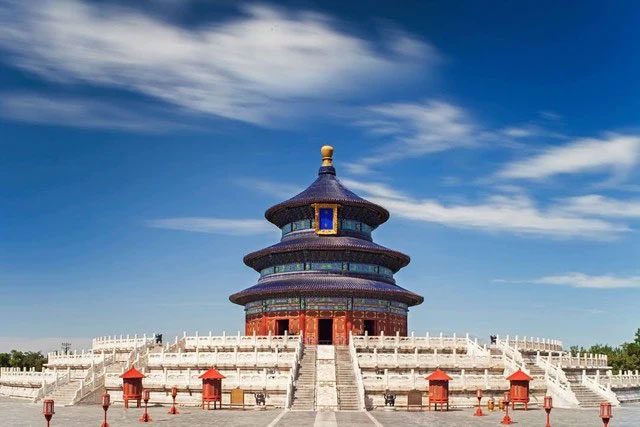
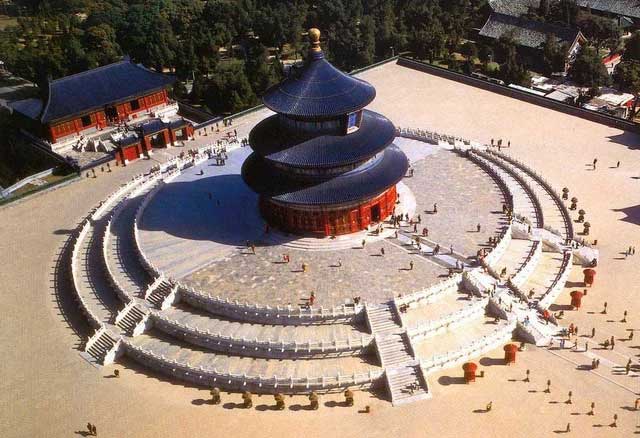
Temple of Heaven, Beijing.
The Temple of Heaven means Altar of Heaven and is a complex of altars located in the southeastern inner city of Beijing, corresponding to the current Xuanwu District. This monumental site holds great cultural significance and is recognized as a UNESCO World Heritage Site. Construction of the Temple of Heaven began in 1420 during the reign of the Yongle Emperor of the Ming dynasty.
As a center of worship for the royal family, this is where the emperors of the Ming and Qing dynasties conducted rituals to honor the Sky God, known as the Supreme Deity, which was one of the most important ceremonies of the year throughout the dynasties.
Due to its small size, this door is not easily noticeable within the magnificent Temple of Heaven complex, and therefore attracts little attention.
This door is referred to as “Gu Xi Gate”, located on the western wall of the Hall of Prayer for Good Harvests. It is not very large and does not appear particularly appealing in terms of design or scale.
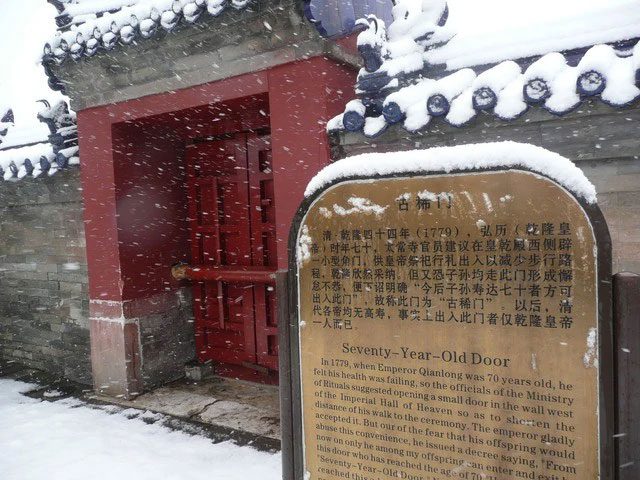
Gu Xi Gate.
In fact, this door was added later, not originally part of the structure. At that time, the Temple of Heaven had been completed for nearly 300 years, and the Qianlong Emperor was over 70 years old.
It is well-known that Qianlong was a talented and wise emperor, distinguished for his artistic achievements and governance skills. During his reign, he placed great importance on worship and rituals, organizing numerous ceremonies for the Sky God each year. By the age of over 70, each visit to the Temple of Heaven for worship required him to walk a long distance, cross the Danbei Bridge, and perform a series of complex activities during the ceremony.
This was certainly not a problem for younger individuals, but it posed a significant challenge for a 70-year-old man like Qianlong.
For this reason, the court officials discussed multiple times what could be done to ensure that Emperor Qianlong could not only perform his worship smoothly but also maintain his stamina and reduce fatigue.
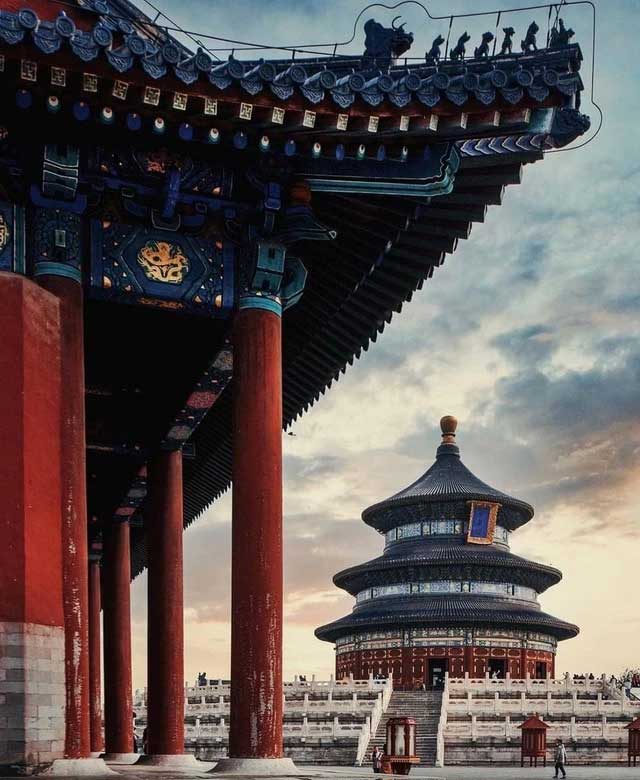
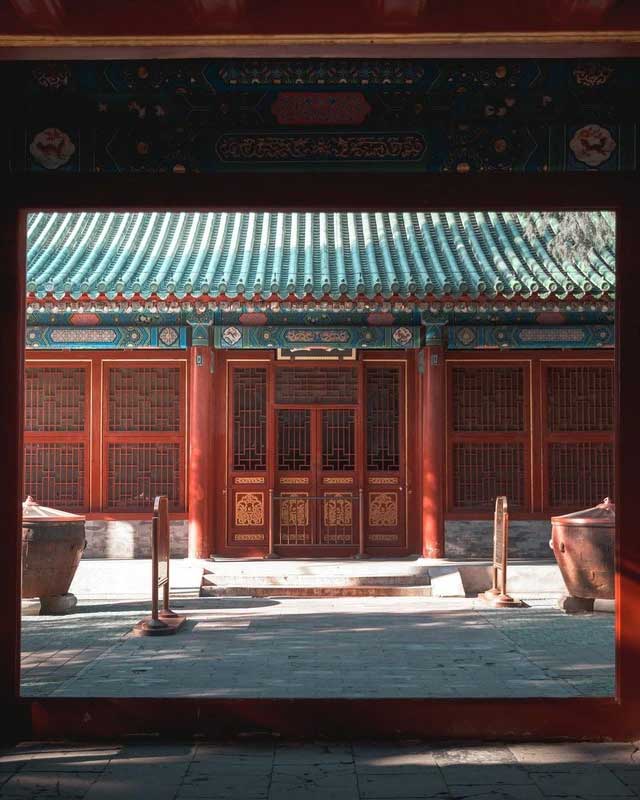
Since its construction, only Emperor Qianlong has passed through this door. (Illustrative image).
Subsequently, an official proposed a solution that a small door should be opened on the wall of the Hall of Prayer for Good Harvests, allowing the emperor to take a shorter route to the altar.
Emperor Qianlong agreed with this idea, but he feared that future generations would grow lazy and directly pass through this door, so he devised a plan.
The small door was inscribed with three characters: Gu Xi Gate. Additionally, it was stipulated that only descendants of the age “Gu Xi” (in Chinese culture, Gu Xi refers to those over 70 years old) could pass through this door.
However, who would have thought that a hundred years later, none of the royal descendants lived to be 70 years old to visit the Temple of Heaven for worship, thus only Emperor Qianlong has passed through this door since its construction.
This was something that Emperor Qianlong never anticipated, and it was also what he did not want to witness. In the noble family, preserving lineage is a top priority. Especially in the royal family, with its three palaces and six courtyards, and three thousand concubines, all efforts were aimed at sustaining a noble bloodline.
However, even the Qing dynasty, which experienced the prosperous reign of Kangxi and Qianlong, faced decline. During the Xianfeng period, Guangxu and Puyi, the number of imperial descendants dwindled, with some even having no offspring at all. This was the most sorrowful situation for the royal family.
A small concealed door held Emperor Qianlong’s hopes for the longevity of his descendants of the Qing Dynasty. Yet, reality turned contrary to this wish.


















































